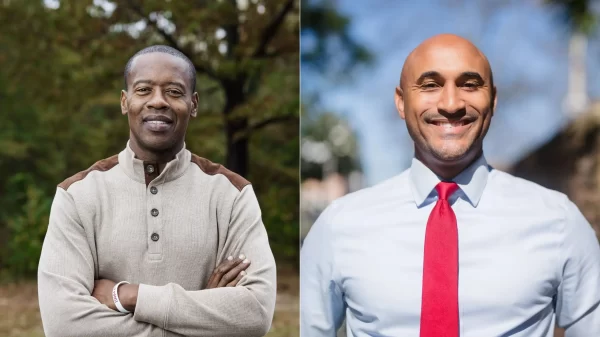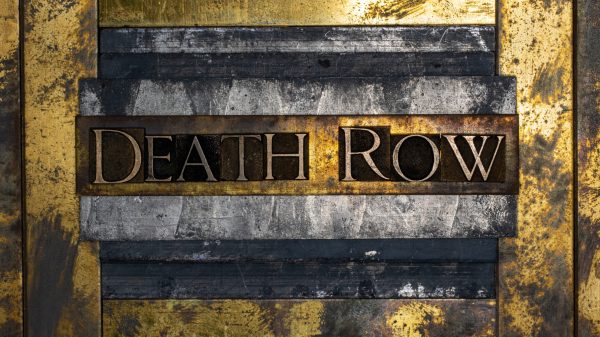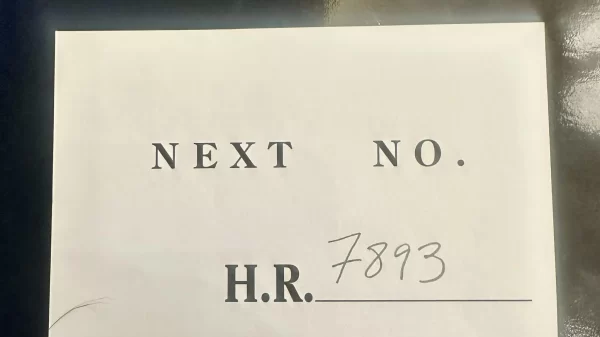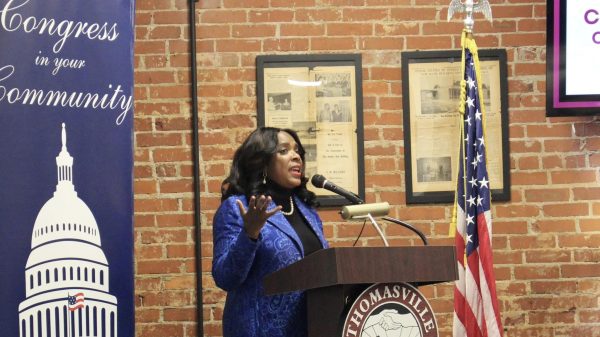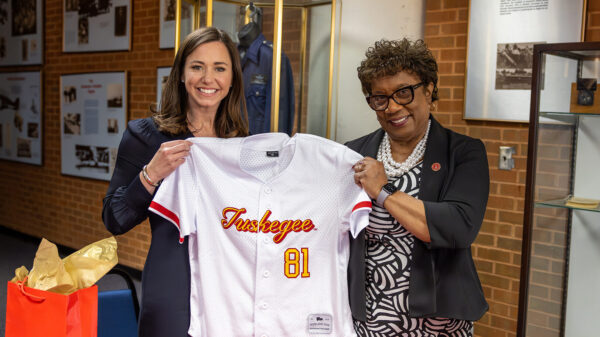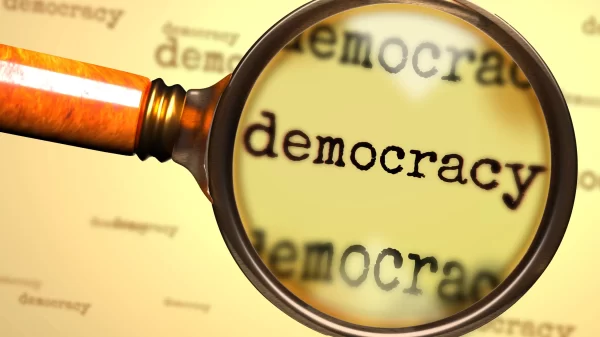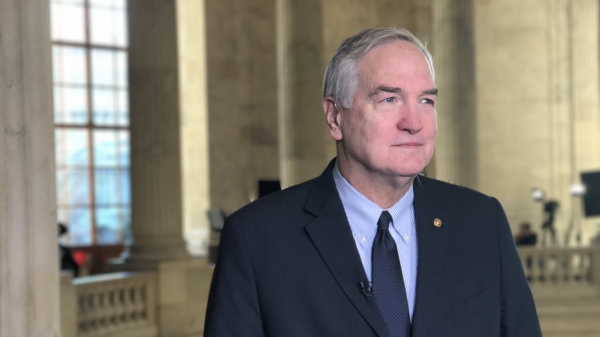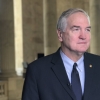By Bill Britt
Alabama Political Reporter
APR: Everyday we hear how the budget is straining the state government is, how is that affecting the ability of the state to fight and prosecute crime and is there any solution to this?
STRANGE: So far, I think we are doing a good job, the DAs are doing a very good job. We are going to be fighting that budget fight early on but what concerns me is when you see the forensic labs cut. That is a good example of what really happens with law enforcement, when you can’t get your results back on a crime scene, particularly getting fingerprints back. Some of the satellite forensic labs have already been eliminated and they are being centralized at certain locations in Auburn and Montgomery, that’s a killer because the longer it takes the hazier memories get, witnesses wonder off, I am really concerned about that.
APR: The unfortunate thing is any time there are talks about having to cut programs, or even look to the Education Trust Fund, people get all up in arms. Then everything is reduced to sloganeering and people say stupid things like: “Well, we’re not going to let you cut such and such from the children’s to protect prisoners.” But they are not seeing the bigger picture. This is about law-enforcement trying to protect citizens by keeping people in jail or putting people in jail. It’s complex isn’t it?
 STRANGE: It is a very complex issue and the people in the Department of Corrections do a miraculous job in keeping that system together with the resources that they have. You have got to give them all of the credit in the world. It’s a delicate, tough situation.
STRANGE: It is a very complex issue and the people in the Department of Corrections do a miraculous job in keeping that system together with the resources that they have. You have got to give them all of the credit in the world. It’s a delicate, tough situation.
I am going to continue to work with Cam [Ward] and the judges and DAs because this is the second largest piece of our General Fund Budget.
APR: There are a lot of issues facing law-enforcement and the judiciary, two big ones are alternative sentencing and Truth in Sentencing. Recently, I was speaking with [District Attorney] Chris McCool about more judicial input in regards to sentencing and he was sharing with me that when citizens elect DAs and judges they are electing local folks. He was talking about how local judges and DAs have a better understanding of the people in that community and who needs to go to jail and never be let out and who could be put in an alternative situation without trying to jeopardize Truth in Sentencing.
STRANGE: I would say you could still have Truth in Sentencing in a scenario where you are allowing and encouraging local judges to do that.
It is important that once a judges says it is eight years that it is eight years, the victims want it to be eight years. They don’t want it to be, “Well, I’m giving him 15 years and he’ll be out in three.”
That’s what drives victims crazy, it drives the police crazy. Suddenly, a criminal is back in the community when they thought we had sent them away for 20 years. If the judge makes the determination on the front end that this guy should serve five years, one year or ten, then he actually gets that time. Then I think victims would be more understanding about it.
APR: Why do we have this sort of craziness where someone gets 15 years and they are out in three? Can you give me a better understanding about this?
STRANGE: You know, I’m not sure, it has been built up, it is sort of a system that has been in place. I think it sounds good to give somebody 20 years, but over the years with a system that is drastically overcrowded they just starts adding on points for good behavior and other factors that just allow it to be whittled down, so they could get them out of crowded prisons.
APR: So a lot of this does, in fact, go back to the under-funding and overcrowding of our prisons. These people are let free, in part, due to a broken system.
STRANGE: Yeah, nobody is really all that happy with it. We have a pardons and parole board, as well, which not every state has. They are very good, they are a safeguard for keeping the worst from getting back on the streets any earlier than they have to be, and so they do a good job as well. There are problems with the system but they are being addressed.
APR: Changing the subject, (and this is kind of a softball question but always a fun one) what has surprised you the most about the job so far?
STRANGE: That’s a tough question, I thought you were going to ask me an easy one.
APR: You don’t have to answer that, I just thought it was a fun one.
STRANGE: No, no. Really, there have just been so many surprises that it is hard to say. It is such a wonderful job and I believe it’s even a better job than I could have imagined. I knew it was a great job but you get to be involved in so many things.
We have been given so many interesting issues to work on.
And critical things like the tornados. Early on we were pro-active. One of the ways was to reached out very early on going after people who might try to take advantage of the situation instead of waiting until after the fact on things, for example, like price gouging. This is always a problem after a hurricane or tornado or a disaster like that. Suddenly, there are a lot of allegations out there of merchants price gouging. We didn’t wait for it to happen.
Before the storms hit we reached out to the trade associations that represent all of the service stations and said, “Look. Here is what the rules are and if we get any reports of price gouging we are going to call you up and get you to call the station, and we will tell you where it is. If it is not fixed or if we don’t have a good answer for it in two hours we are sending a police car there.” And we had no problems. Every time we got a complaint we called the association and they would call the merchant and it would get fixed.
You know we have been trying to be pro-active on some things like that. During the tornadoes the police were just fabulous which it was great to see them work the way they did.
And then there is the immigration issue. I have really been surprised at just how controversial that has been but I guess that comes with it.
APR: Certain people and the media, most often, will paint many of us in Alabama as racist. My opinion is that this is not a racist bill it is a bill about the law and doing what the federal government basically has in their law but refuses to enforce.
STRANGE: I couldn’t agree more, this law is about addressing a problem that the federal government has not addressed. As a matter of fact, it was the Bush Administration for eight years that didn’t do anything about it. Now it is year three in the Obama Administration and they haven’t done anything about it. They just got more aggressive in determining that they were simply not going to enforce the law.
But, you are right about this perception about Alabama, and I think that maybe, in part, because we have actually had significant portions of our law upheld, unlike the other states. You know, there are a half a dozen other states that are doing the same thing Alabama is, I think that has made us a little bit of a target, I think that is part of it.
And I think it is easy for people to want to try and recreate the civil rights movement to use Alabama’s history.
I don’t know if you saw the editorial in the ‘New York Times’ basically comparing me to George Wallace standing in the schoolhouse door because I sent a letter to the Justice Department saying, “I would like to know what authority you have to collect a lot of information about our schools.” And they took that to be akin to George Wallace standing in the schoolhouse door.
This was just kind of a typical letter in the context of litigation. The Justice Department was suing us, and I thought it was a backdoor way to do discovery.
You don’t allow the police to nail a warrant to your door unless you look it and say, “What authority do you have?” I would never have imagined in my wildest dreams that they could come up with George Wallace comparison but then I started thinking about it and that is just a perception that they have.
Even though, like you, I have traveled all around the world and recruited people like Hyundai to come to Alabama, served on the board of Talladega College and done everything possible to move Alabama to the 21st Century.
And I think we have made great strides. I mean lightyears of strides since the 50s and 60s, but they still have that same perception. And I said to someone that the ‘Washington Post’ was trying to write a story about confrontation with the federal government and I said, “I have no confrontation with them. We want to work with them. We are both in the law-enforcement business.”
I am not going to allow anyone to be profiled, singled out, discriminated against or anything else in Alabama, but we need to work with the federal government. But I thought, Alabama has had some skeletons in the closet if you go back 50 or 60 or so years ago. And I guess this journalist decided to pull one out and beat me over the head with it. But that George Wallace thing was just a classic example of that.
APR: A comparison like that certainly stops dialog.
STRANGE: If you don’t like the tone of a letter simply asking for government’s authority then, who knows. That is a typical example of what we are up against.



